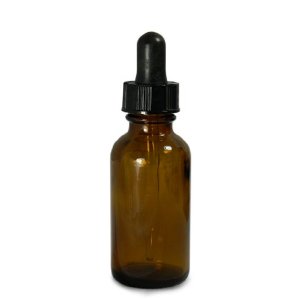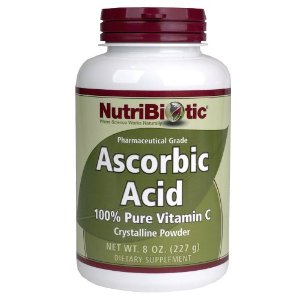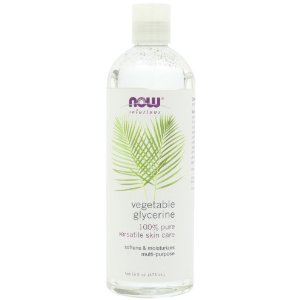This month, I am going to give you a few DIY (do it yourself) recipes for glam alerts.
Vitamin C Serum is all the rage, and I myself have purchased a bottle for over $50, that didn’t really seem to do anything but cost me money. Most Vitamin C Serums cost anywhere between $50 to $100 or more for just one ounce.
I watched a youtube video from UppiesBeads59, who gave detailed instructions on making your own Vitamin C Serum. So, I went to amazon.com and purchased:

Bottle and Dropper for $4.69

Ascorbic Acid Powder for $14.00

Glycerine for $7.00.
I also purchased a big jug of distilled water from the supermarket. I use a small glass jar to mix, and have found that the powder I purchased above dissolves completely.
You will find lots of variations of the amounts to use for making your own Vitamin C Serum if you do a web search or a youtube search. I personally would recommend using the amounts listed on Miss Tammy’s youtube video listed below, and start out with the weakest strength to begin. I actually made a miscalculation once and made it too strong, and had a burn mark on my neck. Nothing permanent, probably did my skin good to have a little deep treatment but I did learn my lesson to make sure to use the calculations just as recommended. If you feel a little burning, you are probably using the right strength. If you feel a lot of burning, you probably need to immediately wash it off and go down to a weaker amount. If you don’t feel any burn, you can crank it up to a stronger strength. Be sure and apply your moisturizer after you have let the Vitamin C Serum soak in and dry for a few minutes.
5% Serum 1/4 tsp. powder 4 tsp. distilled water 3/4 tsp. glycerin
10% Serum 1/4 tsp. powder 2 tsp. distilled water 1/4 tsp. glycerin
15% Serum 3/8 tsp. powder 2 tsp. distilled water 1/8 tsp. glycerin
20 % Serum 1/4 tsp. powder 3/4 tsp distilled water 1/4 tsp. glycerin
I am in no way an expert on this, so please use with caution, and educate yourself. Only you know your own face and how it responds. It may be that you want to purchase the Vitamin C Serum instead of making it yourself. I spent around $25 for the products listed above, and can guarantee I have several years’ worth of supplies to make my own Vitamin C Serum. I make a fresh bottle every week, and it takes less than 3 minutes to make. I apply twice a day, both morning and evening. I have been doing this for over two months, and I have noticed a significant difference in my skin. It’s brighter, the wrinkles are smaller, and the age spots are fading. I use the product on my face, neck, arms, and hands. It is much easier to cover more areas when you aren’t spending $50 a ounce for the stuff!
Here is some more information on the benefits of Vitamin C Serum, straight from Dr. Oz’s website.
Take 10 years off your face today with these easy and effective Oz-approved secrets.
Secret #1: Vitamin C
Vitamin C is critical for your body and plays an important role in maintaining healthy, resilient skin. While young skin is full of vitamin C, aging skin naturally loses this nutrient over time. Other factors like exposure to UV light, pollutants and cigarette smoke compound the decline of vitamin C, contributing to signs of aging. The good news is that you can fight back by replenishing your skin’s vitamin C levels to help to combat and even reverse time’s effect on your face.
Wrinkles
One of the most powerful functions of vitamin C is its role in the production of collagen, a protein that gives your skin its elasticity. As you age, collagen breaks down and wrinkles begin to form. Stabilizing your skin’s levels of vitamin C can help to counteract wrinkle formation by increasing collagen production.
Age Spots
When it comes to treating age spots, you don’t need chemical peels and lasers – it turns out that vitamin C can have almost the same results! Age spots are essentially sun damage, and vitamin C is a powerful antioxidant, shown to reduce the number of sunburned cells as well as reverse age-related damage to skin. While it’s not a replacement for sunscreen, vitamin C protects against and may repair UV damage like discoloration and fine lines.
Your Anti-Aging Rx
Taking vitamin C through a supplement or food is beneficial to your health, but to specifically target signs of aging on your face, topical vitamin C is best. In fact, applying vitamin C to the skin can be 20 times more effective than taking it orally. Topical vitamin C is sold in a wide range of products from serum to lotions. Look for products that contain between 3% and 10% of vitamin C and include the active ingredient ascorbic acid or L-ascorbic acid. Pay extra attention to the packaging – all antioxidants, including vitamin C, are vulnerable to deterioration in the presence of air and light. Unless the product is in an airtight and opaque package, don’t buy it!
Apply topical vitamin C once a day, ideally after you’ve exfoliated in the morning to utilize vitamin C’s sun-protecting properties. On rare occasions, topical vitamin C can cause some mild dryness or flaking. Counteract this side effect with a moisturizer. This topical nutrient is safe to combine with all your other skin care products and even works synergistically with other antioxidants. For a super powerful anti-aging punch, combine vitamins C and E together.
The length of time from when you start using vitamin C until you see results varies with each person. While some people see changes as soon as 2-4 weeks, it may take others 6-8 weeks to see a difference. After around 6 months, you’ll reach the maximum benefits.







Thanks to you, I do this and it is wonderful!!! I am getting ready to increase by ascorbic acid as my skin is ready for it. This is fabulous!
September 6, 2013 @ 11:17 am
The glycerine is going to create a greasy mess on your face and likely clog your pores
October 13, 2013 @ 7:42 pm
Actually Shannon the amount of glycerine used doesn’t make it greasy – it still is basically a water based serum.
October 14, 2013 @ 8:14 am
You could sub Coconut oil or aloe vera in place of the glycerin.
December 18, 2013 @ 12:48 pm
What is the purpose of glycerine?
February 5, 2014 @ 3:07 am
I think it’s just supposed to give it more of a “serum” feel – another reader suggested using coconut oil instead. I really don’t see that it makes it any thicker, and once I use up the glycerine I probably won’t repurchase.
February 5, 2014 @ 10:32 am
I have ultra sensitive skin and even the 5% is too strong and burns too much. The next day after using 5% my face was red and inflamed.
So, I skipped a day and started using a 2.5% serum. That seems to be fine. I feel mild stinging for a few minutes while it’s still wet and then I’m fine. Still seeing results after one week at 2.5%.
February 18, 2014 @ 2:18 am
You were smart to dilute the strength Rachael – glad it’s working for you! I think it’s made a huge difference in my skin!
February 19, 2014 @ 10:31 am